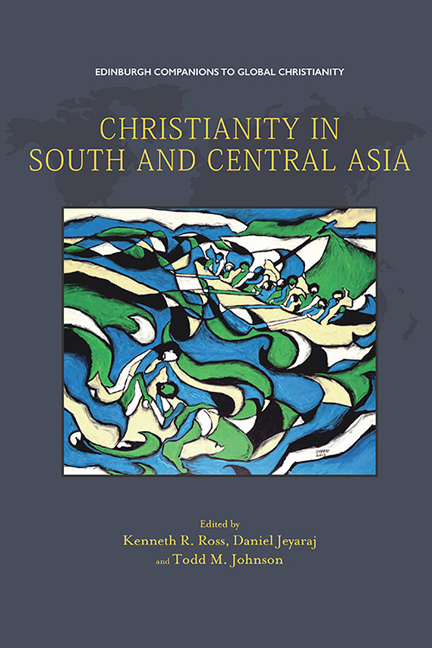West India
Published online by Cambridge University Press: 30 April 2020
Summary
The western area of the country represents the most urbanised, industrialised, educated, technologically advanced and socio-religiously progressive part of India. It is here that the Christian faith has met with the most hostile as well as the most positive responses. Being a progressive segment that provided leadership for many socio-religious as well as political reform movements in India, this region has great potential to impact the nation extensively.
West India includes the states of Gujarat, Maharashtra and Goa along with the union territories of Daman and Diu, and Dadra and Nagar Haveli. According to the 2011 census, the West region constitutes 14.32% of India's total population. The major people groups in Maharashtra, in order of caste hierarchy, are Brahmins, Marathas, Kunbis, artisans and untouchables. The Brahmins, despite being a minority, were the privileged class. The Marathas were the ruling class, particularly under the seventeenth- century warrior king Chhatrapati Shivaji and the Peshwas, his subordinate rulers. Maharashtra is known for its rigid and oppressive caste system, and yet this region has also produced some of the most progressive socio-religious reformers. Gujaratis have a reputation as merchants, industrialists and entrepreneurs. A very large immigrant Gujarati community is present in Mumbai and in the union territories of Daman and Diu, and Dadra and Nagar Haveli, both being former Portuguese colonies. Religiously speaking, about 83% of the people in the West region are Hindus, while the Muslims constitute more than 10% and Buddhists about 4%. Christians and other minority groups such as Jains, Zoroastrians and Jews make up the remainder.
Emergence and Expansion of Christianity
Christians in the coastal region, particularly Maharashtra, claim that the gospel came to western India through Bartholomew, one of the disciples of Jesus, but there are no historical records to prove this. Nevertheless, the Christian presence can be traced back to the sixth century. Cosmas Indicopleustes, a Greek merchant, saw a church in Kalliana (present-day Kalyan, near Bombay/Mumbai) in the year 545, with a bishop consecrated from Persia. In 1321, when Jordan of Severac, a French Dominican priest, arrived in Thane, he found Nestorian Christians who had been settled there, as well as in Kalyan, Sopara and also Broach (Bharuch in Gujarat), since the seventh century. It is clear, therefore, that Christianity was present in the West of India long before the arrival of the Portuguese or the British.
- Type
- Chapter
- Information
- Christianity in South and Central Asia , pp. 131 - 142Publisher: Edinburgh University PressPrint publication year: 2019



